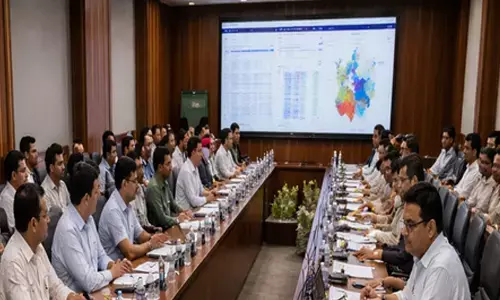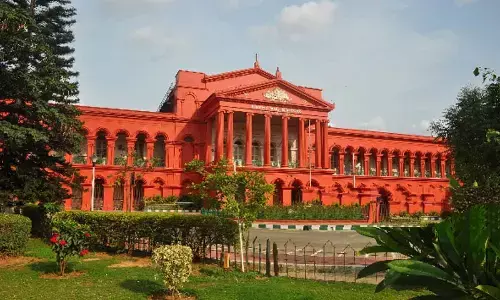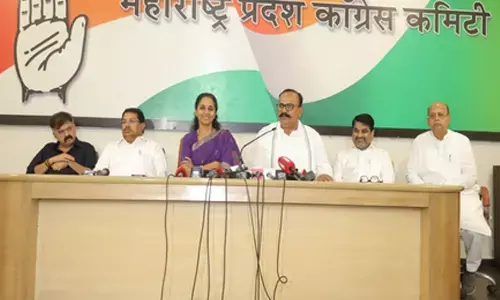Empowering Fifth Estate

Empowering Fifth Estate. When space for people’s voice was shrinking in daily newspapers and TV, the social media network created unlimited and unbounded space for citizen’s expression.
 Free and open Internet stimulates ISP competition, helps prevent unfair pricing practices, drives entrepreneurship and most importantly protects freedom of speech. Vibrant Netizens added to the force of conscious civil society, which together is the ‘Fifth Estate’ that can question happenings in the Three Estates and in so-called ‘Fourth Estate’ – the Media
Free and open Internet stimulates ISP competition, helps prevent unfair pricing practices, drives entrepreneurship and most importantly protects freedom of speech. Vibrant Netizens added to the force of conscious civil society, which together is the ‘Fifth Estate’ that can question happenings in the Three Estates and in so-called ‘Fourth Estate’ – the Media
When space for people’s voice was shrinking in daily newspapers and TV, the social media network created unlimited and unbounded space for citizen’s expression. When all the four estates did not bother about burning issues and suppressed certain sensational corrupt events, it was challenged by the civil society through their blogging, twitter, Facebook postings, emails, web writings, chatting, WhatsApp transmitting and public speeches. If the commercial publisher refuses, the author has no alternative till recently.
Niira Radia tapes revealed nexus between industry, political leaders and lobbyists exposing high end corruption. But this was kept out by main stream media. It was only the magazines and social network that exposed the media’s interests, too. This compelled the media to write and talk about it. This vibrant Netizens added to the force of conscious civil society, which together is the ‘Fifth Estate” that can question happenings in the Three Estates and in so-called ‘Fourth Estate”- the Media. Now the Internet is the medium where citizens have ample space and enough speed to reach the other Netizens, thanks to great invention of information technology. Next to wheel, the Internet impacted the life of the Global citizen.
The freedom declared but not easily enforceable by Article 19(1)(a) was realised by the IT. Unless the editor gives a little space, even a small letter does not find space in a newspaper. The TV channel though has 24 hours a days, spends whole day on what the proprietors likes to give the viewers. They have an onerous duty to take care of interests of the investor. All theaters in a city show same movie, leaving no ‘freedom’ to anyone. If a book publisher refuses or just sits over book for years, the author does not find expression at all. Now, thanks to the Internet, one can publish a book without publisher; write an article without depending on editor’s choice. When traditional media is reeling under the paid news syndrome, blog media is donning the role of the fourth estate.
‘Golden Era’ of the social media started in 2001. By this time there were already several chat application iterations. Wikipedia followed by Friendster, MySpace, Facebook in 2004, and Twitter in 2006. While Facebook and Twitter are the two top social media platforms today, MySpace has undergone several pivots and is still in operation. Internet should not be defined as bunch of ‘Over the top (OTT) services’, if so it will close the internet. Internet is free. However, it does not mean not paying for bandwidth. It means there is no need to have license to create website, to create app for use on computers, tablets and mobiles. It gives scope for permission-less expression and also innovation.
Netizen in the virtual world has more freedom than a citizen in real world. Skype (not voice over internet protocol) and WhatsApp (messaging service using internet) do not need to have license. Recently the ISPs lobby increased its influence to make internet companies to share their revenue with them, and trying to violate network neutrality, impeding the freedom of expression. They are worried that internet companies are making tonnes of money and telcos cannot get any income through internet-based services. But, those who supply basic infrastructure cannot demand to partake of the goodies.
Because of these lobbies the innovation is in danger. Innovation flourishes when mind is free, and on internet it flourishes when it is neutral and provides access to all and to all websites in same manner which is the meaning of net neutrality. It is unfortunate some companies are trying their best to control the net to net net-profits. They cannot grab clouds and airwaves which belong to humanity as a whole. Bharti Airtel proposed to charge extra for use of apps like Skype and Viber as they are competing with voice messaging services at cheap rates which ISPs apprehend eating into their income. There was huge uproar and Airtel backed off.
Facebook came up with internet.org–a pre-selected bouquet of websites offered free to subscribers of Reliance Communications. Airtel Zero is another ploy with free offering of a slew of apps that sign up with telecom providers. Noticing the mood of the netizens against it, the Flipkart pulled out of that. In 2003 Tim Wu, a professor of Columbia Law School popularised this concept, which says absolute non-discrimination–no regard for quality of service considerations, limited discrimination without Quality of Services tiering. Quality of Service discrimination allowed as long as no special fee is charged for higher quality service. Its another quality is limited discrimination and tiering, which means higher fees for quality of service provided there is no exclusivity in contracts.
This concept dates as far back as the 1800’s when Almon Bron Strowger invented an automatic telephone exchange to bypass non-neutral telephone operators who redirected calls for profit. In 2005 Federal Communication Commission (FCC) issued an Internet policy statement outlining the principles of open Internet, where consumers are entitled to the choice to access the lawful internet content, run the lawful applications, connect lawful devices, and use the Internet service provider.
Advocates for net neutrality say that cable companies cannot screen, interrupt or filter Internet content without court order; should ensure the internet remains a free and open technology, create an even-playing field for competition and innovation. Argument against net neutrality is as follows: ISPs should be free to charge for faster internet service; It will encourage phone and cable companies to invest in advanced fiber optic networks; Government legislation could prevent ISPs from preventing email spam and denial of service attacks; Google proposed a pact with Verizon that would allow for creation of a higher speed ‘private’ internet that sites could pay a premium to use.
Net Neutrality is the Internet's guiding principle that "preserves our right to communicate freely online", Free and open Internet stimulates ISP competition, helps prevent unfair pricing practices, drives entrepreneurship and most importantly protects freedom of speech. Unfortunately some internet service providers are trying to fundamentally alter the way the internet works and collecting money from companies like Netflix and Facebook to guarantee their data can continue to reach users unimpeded. This is called paid prioritisation, which is against ethics like paid news in print medium, which should not be allowed at all.











